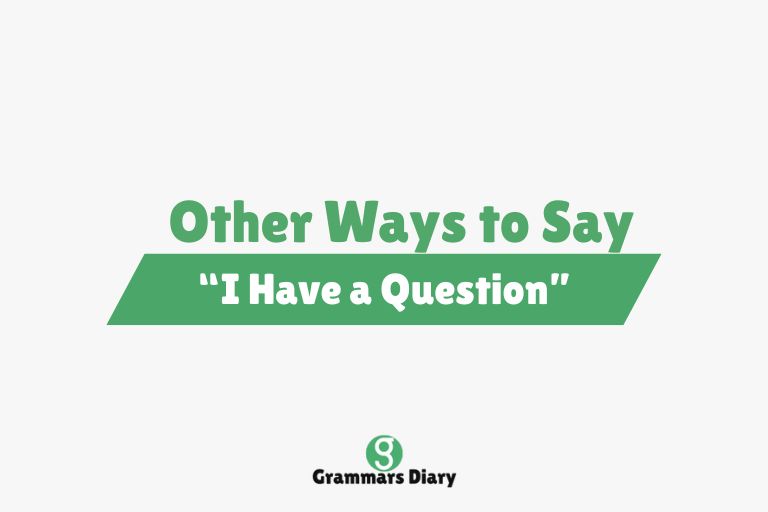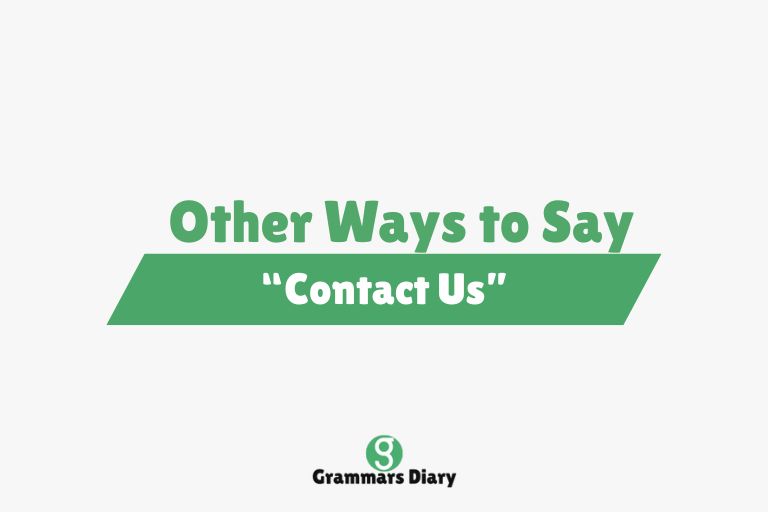25 Other Ways to Say “Let Me Know if I Can Be of Further Help”

“Let me know if I can be of further help” is a commonly used phrase that expresses willingness to provide additional assistance, offer support, or remain available should the recipient need anything more. It’s polite, thoughtful, and signals openness—but if you find yourself using this phrase repeatedly in professional emails, personal messages, or customer service communications, you might want a broader vocabulary to express the same sentiment in different ways.
Fortunately, there are many other expressions that deliver the same message while sounding more specific, creative, or appropriate depending on the tone and context. In this post, we’ll walk through 25 useful alternatives you can confidently use to expand your communication style while still conveying helpfulness, warmth, and professionalism.
Other Ways to Say “Let Me Know if I Can Be of Further Help”
- Please don’t hesitate to reach out again.
Example: “If anything else comes up, please don’t hesitate to reach out again.”
Meaning: This expression invites continued communication and reassures the person that future contact is welcome and encouraged.
Usage: Excellent for both formal and casual exchanges, especially emails and customer service messages. - I’m just an email away if you need anything else.
Example: “I’m just an email away if you need anything else down the line.”
Meaning: This provides a sense of availability and convenience, showing the person that you’re accessible and approachable.
Usage: Friendly and personable, ideal for emails and text-based communication. - Let me know if you have any other questions.
Example: “Let me know if you have any other questions or concerns I can help with.”
Meaning: Encourages the person to follow up while emphasizing your openness to clarifying or elaborating on previous information.
Usage: Very common in professional contexts, suitable for reports, follow-ups, or meeting recaps. - I’m happy to help if anything else comes up.
Example: “If something comes up later, I’m happy to help.”
Meaning: Demonstrates a genuine willingness to assist without sounding too formal or rigid.
Usage: Best used in informal emails or friendly messages. - Reach out anytime if you need further assistance.
Example: “Feel free to reach out anytime if you need further assistance.”
Meaning: Keeps the door open for ongoing support while creating a sense of approachability.
Usage: A good fit for customer support, onboarding, or troubleshooting emails. - I’m here if you need me.
Example: “I’m here if you need me—just let me know.”
Meaning: Short, simple, and supportive. This phrase assures the other person that you’re standing by, ready to help.
Usage: Especially useful in personal conversations, coaching, or mentoring scenarios. - Let me know if there’s anything else I can do for you.
Example: “Let me know if there’s anything else I can do for you before Friday.”
Meaning: Clearly communicates that you’re open to further help while subtly reinforcing your role or responsibilities.
Usage: Ideal for client relations, assistant roles, or team collaboration. - You’re welcome to contact me if anything else comes up.
Example: “You’re welcome to contact me if anything else comes up between now and the meeting.”
Meaning: Expresses polite encouragement for continued communication.
Usage: Works well in professional settings or formal writing. - Feel free to get in touch with me again.
Example: “If you think of anything later, feel free to get in touch with me again.”
Meaning: Suggests that the door remains open for future dialogue.
Usage: Suitable for both professional and casual settings. - I’d be glad to help with anything else you need.
Example: “If you need support with anything else, I’d be glad to help.”
Meaning: Communicates helpfulness in a warm and proactive way.
Usage: Excellent in customer support or volunteer services. - Let me know how else I can assist you.
Example: “Let me know how else I can assist you with the transition.”
Meaning: Shows continued interest in helping, with a forward-looking and professional tone.
Usage: Effective in B2B communications or after a service delivery. - Always happy to help if you need anything more.
Example: “Always happy to help if you need anything more in the future.”
Meaning: Reinforces that support is available without obligation.
Usage: Good for friendly but polished conversations, especially after closing a task. - I’m here to support you however I can.
Example: “I’m here to support you however I can during the next phase.”
Meaning: Implies deeper or ongoing assistance and care.
Usage: Effective in mentoring, team leadership, or customer loyalty programs.
- Please let me know if something else comes up.
Example: “Please let me know if something else comes up before the event.”
Meaning: Encourages open communication for unexpected developments or future needs.
Usage: Suitable in project updates, scheduling, or client communication. - Don’t hesitate to ask if you need more help.
Example: “Don’t hesitate to ask if you need more help navigating the portal.”
Meaning: Shows you’re welcoming questions and willing to offer continued support.
Usage: Works in instructional or service-based interactions. - I’m available if you have additional concerns.
Example: “I’m available if you have additional concerns before the deadline.”
Meaning: Demonstrates openness and readiness to respond, especially to unresolved issues.
Usage: Best for formal contexts like legal, healthcare, or consulting. - I’m just a call/message away.
Example: “I’m just a call away if you need quick help with anything else.”
Meaning: Makes you sound easily reachable, removing formality and building rapport.
Usage: Excellent for team collaboration, tech support, or peer-to-peer communication. - Keep me posted if there’s more I can do.
Example: “Keep me posted if there’s more I can do before launch.”
Meaning: Adds a casual tone while still offering help and engagement.
Usage: Friendly follow-up phrase for ongoing projects. - Reach out again if needed.
Example: “Thanks again—feel free to reach out again if needed.”
Meaning: Offers an invitation for further support without pressure.
Usage: Great for wrapping up emails or calls with clients and customers. - I’m open to helping in any other way you might need.
Example: “I’m open to helping in any other way you might need during the transition.”
Meaning: Extends your support to a wide range of possible tasks or concerns.
Usage: Helpful in team settings, HR roles, or remote working scenarios. - If there’s anything more I can do, just let me know.
Example: “If there’s anything more I can do to assist, just let me know.”
Meaning: Keeps things professional while reinforcing your availability.
Usage: Appropriate for wrap-up messages or service confirmations. - I’ll be around if anything else comes to mind.
Example: “I’ll be around if anything else comes to mind after reviewing the plan.”
Meaning: A laid-back way of offering further help without sounding overly formal.
Usage: Casual business or internal communications. - I’m always here if you need a hand.
Example: “I’m always here if you need a hand with any final edits.”
Meaning: Warm and approachable—gives a sense of dependability.
Usage: Ideal for creative teams, group projects, or mentorship. - Just drop me a note if you think of anything else.
Example: “Just drop me a note if you think of anything else you’d like added.”
Meaning: Shows that continued communication is not just welcomed but encouraged.
Usage: Great for email conversations, freelance communication, or design reviews. - Feel free to loop me in if needed.
Example: “Feel free to loop me in if needed for any future updates.”
Meaning: Offers to be included in ongoing matters without imposing.
Usage: Ideal for project-based work, team collaborations, or shared documents.
When to Use Different Alternatives
In Business or Client Emails
In professional settings, clarity and tone are everything. Phrases like “Let me know how else I can assist you” or “I’m available if you have additional concerns” strike the right balance of courtesy and competence. For less formal moments, “I’m just a message away” works well without sacrificing professionalism.
In Personal Conversations
If you’re supporting a friend or a peer, friendly phrases like “I’m always here if you need a hand” or “Just drop me a note” help keep the conversation warm and open. These expressions feel natural and sincere without sounding scripted.
In Customer Support or Help Desk Roles
Customer service representatives often need to strike a balance between sounding helpful and maintaining professional tone. “Please don’t hesitate to reach out again” and “Reach out anytime if you need further assistance” are excellent go-to phrases for that purpose.
Conclusion
While “Let me know if I can be of further help” is widely accepted and appreciated for its politeness, variety keeps your communication fresh, thoughtful, and better tailored to the situation. Whether you’re writing an email, texting a colleague, or supporting a client, these alternatives can help you strike the right tone—offering clarity, warmth, and helpfulness without sounding repetitive.
A strong communication style isn’t about fancy words; it’s about choosing phrases that feel natural to both you and your reader, while still delivering your message effectively.
FAQs
What does “Let me know if I can be of further help” mean?
It’s a polite way of offering ongoing support, usually after you’ve already assisted someone. It shows you’re open to helping more if needed.
Is this phrase formal or informal?
It’s generally considered neutral or slightly formal. It fits well in professional emails but can also be used in everyday conversation.
What’s a more casual alternative to this phrase?
“I’m here if you need me” or “Just drop me a note” are more casual yet equally helpful ways to convey the same message.
Can I use these alternatives in business emails?
Absolutely. Many of these alternatives are well-suited for professional settings. Just choose the one that matches your tone, relationship, and context.






